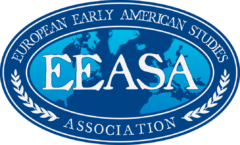The journal Acta Universitatis Carolinae – Studia Territorialia invites authors to submit articles for a special issue titled “Postcolonial Perspectives in Area Studies.”
Postcolonialism as a lens through which the globalizing world can be viewed and explored is one of the most controversial issues in the humanities and social sciences. It has both enthusiastic endorsers and sworn opponents. For more than a half-century now, their disputes have mirrored the dynamic of the development of postcolonial discourse. In its approach to the legacy of colonialism and decolonization, the study of postcolonialism has taken on a new form under the influence of poststructuralism. The model of a final and universal divorce from the colonial past was replaced by the idea of a “multiplicity of histories” arising in varying territorial forms. Postcolonial discourse has fragmented, weakened in its global applicability, and been transformed into a plethora of local narratives.
With the rise of new social movements and the end of the Cold War, a new scheme of postcolonialism has appeared that brings together and interconnects the polycentric narratives. Postcolonialism is now being approached with a new kind of multicultural sensitivity. This new direction of research has resulted in a critical reinterpretation of historically and spatially fixed forms of inequality, oppression and exclusion, with the goal of overcoming their consequences in the real world. The study of postcolonialism has broadened its attention to include post-communist nations, relations between East and West, and newly emerging power structures in the present world, among other topics.
This special issue aims to conceptualize postcolonial theory from different disciplinary angles. It will focus on the various territorial contexts in which control, domination, and exclusion occur. Furthermore, it will seek to analyze the rise and development of social and political movements that are striving to deal with the mechanisms of power. In line with the territorial emphasis of Studia Territorialia, contributions should focus on North America, Europe, and post-Soviet Eurasia. However, studies of other regional contexts are welcome as well, provided they have a strong link to the regions covered by the journal.
Topics may include, but are not limited to:
• Colonialism and modernization
• Colonialism in the Cold War era
• The Soviet Bloc as a colonial system
• Migration and mobility between metropolises and colonies
• Reshaping the relationship between the colonizing and the colonized
• Legacy of colonialism and colonial inertia as a sort of path-dependency
• Deconstruction of the colonial cultural legacy
• Postcolonial identities
• Self-colonization
• Memories of colonialism and decolonization
• Colonial nostalgia
• Colonialism as a trauma
• Coming to terms with the colonial past
• Decolonization of the public space and culture
• Discursive strategies and practices of colonialism and postcolonialism
• Postcolonialism as a political agenda
• Postcolonial discourse in international relations
• Postcolonialism and gender studies
• Postcolonial perspectives on racial issues
• Theories of postcolonialism
Articles should be in English and should ideally be 6,000 to 9,000 words long (excluding footnotes and abstract). Submissions should be sent to the journal’s editorial team at stuter@fsv.cuni.cz or uploaded via the Studia Territorialia journal management system. Authors should consult the submission guidelines on the journal’s website for further instructions and preferred style. All contributions will be subject to double-blind peer review.
Abstract submission deadline: January 31, 2022.
Notification of status and next steps: February 10, 2022.
Article submission deadline: April 30, 2022.
Studia Territorialia is a leading Czech peer-reviewed academic journal focusing on area studies. It covers the history and the social, political, and cultural affairs of the nations of North America, Europe, and post-Soviet Eurasia in the twentieth and twenty-first centuries. The journal is published by the Institute of International Studies of Charles University, Prague. It is indexed in the SCOPUS, ERIH PLUS, EBSCO, DOAJ, and CEEOL databases and others.
For further inquiries, please feel free to contact the editors.Contact Info:
Lucie Filipová, Studia Territorialia executive editor
Contact Email: stuter@fsv.cuni.cz
